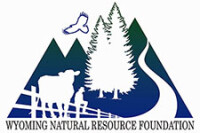About Renewable natural resources foundation
The Renewable Natural Resources Foundation (RNRF) is a nonprofit public policy research organization based in Bethesda, MD. The foundation was established with the primary purpose of advancing science and its application in managing and conserving renewable natural resources. RNRF has been at the forefront of promoting sustainable development practices that balance economic growth with environmental protection.
The foundation's mission is to provide a platform for scientists, policymakers, and stakeholders to collaborate on issues related to natural resource management. RNRF aims to bridge the gap between scientific research and policy implementation by providing evidence-based solutions that are practical, effective, and sustainable.
RNRF's work focuses on four key areas: water resources management, land use planning, biodiversity conservation, and climate change adaptation. The foundation conducts research studies on these topics to identify best practices that can be applied at local, regional, national or international levels.
One of RNRF's flagship programs is its Water Resources Management Initiative (WRMI). WRMI brings together experts from various fields such as hydrology, ecology economics among others to develop innovative solutions for water resource management challenges facing communities across the United States. Through WRMI projects such as "WaterSMART" which promotes efficient use of water resources through technology innovation; "Watershed Health Assessment Framework" which assesses watershed health using ecological indicators; "Water Quality Trading" which incentivizes pollution reduction through market-based mechanisms among others have been implemented successfully.
Another program under RNRF is Land Use Planning Initiative (LUPI). LUPI seeks to promote sustainable land use practices by providing technical assistance in developing comprehensive plans that balance economic development with environmental protection. LUPI also provides training opportunities for planners on how they can integrate sustainability principles into their work.
Biodiversity Conservation Initiative (BCI) focuses on protecting endangered species habitats while promoting sustainable development practices that benefit both people and wildlife. BCI works closely with local communities living near protected areas to ensure their participation in conservation efforts while improving their livelihoods.
Climate Change Adaptation Initiative (CCAI) aims to help communities adapt to the impacts of climate change by providing technical assistance in developing adaptation plans. CCAI also conducts research on the potential impacts of climate change on natural resources and identifies strategies for mitigating these impacts.
RNRF's work is guided by a board of directors made up of experts from various fields such as science, policy, and business. The foundation also has a team of staff members who are dedicated to advancing its mission through research, advocacy, and outreach activities.
In conclusion, RNRF is an organization that plays a critical role in promoting sustainable development practices that balance economic growth with environmental protection. Through its various initiatives such as WRMI, LUPI, BCI and CCAI among others RNRF has been able to provide evidence-based solutions that are practical effective and sustainable. If you want to learn more about what RNRF does or how you can support their work visit their website today!
